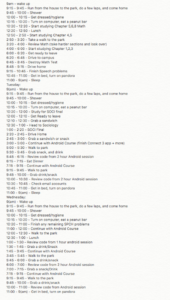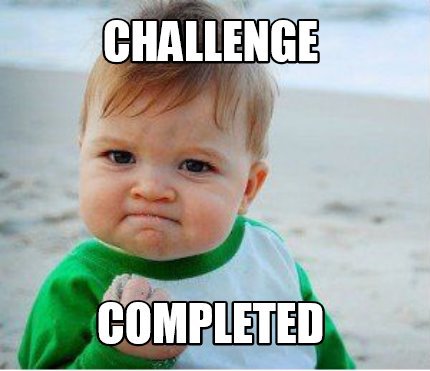Hackathon Continued..
Continuing from where I left off, the hackathon just started and I’m now on a team with some computer science students from the University of Dallas. There are hundreds of people talking, laughing, and interacting with each other. The hackathon is only about a hour into it at this point, and the announcements are about to start.
A representative from the hackathon then came on stage, and listed off a whole slew of tech companies that were in the building. The biggest one being IBM, they brought free Rasberry Pi’s for everyone, and were giving tutorials on using IBM Watson to help solve problems.
Interestingly enough, I met the main guy from IBM while I was standing in line for mexican food and we chatted about how long he’s been at IBM, what the coolest projects he’s seen built using IBM Watson in a 24 hour period, and where he’s traveled doing hackathons. Apparently, IBM has sent him all around the world showcasing IBM’s tech, and helping host if needed. He told me about the coolest project he’s seen built in 24 hours, the project utilized IBM Watson, and also worked as a smart solution for the city.
The project this team built allowed people to take photos of any fire hydrant and then that image would be parsed through IBM Watson, which would identify issues with the fire hydrant, send a repair order, and once the repair order arrived, the route to the fire hydrant would be mapped using the fastest possible route. Once, I finished asking him questions and trying to network a bit, a voice came over the mic for the general announcements.
The announcements were mostly introductions about who was hosting, what they do, how they came to be, and what they can help young or experienced developers with. However, once they finished the really cool presentations started, where anyone who had an idea or anyone who was looking for a team could come on stage and speak.
There were many people who took the stage to explain themselves with the hope of making connections and/or trying to build a team from scratch to create something cool. The first person spoke about a money payment app, which would allow the user to utilize something like Android pay, but make the interface easier to keep track of all payments, then use that data in meaningful ways. The second person that came on stage was a local business owner who was looking for programmers to help build a product, the idea slips my mind. However, he was hiring and anyone who could help out would stand a chance at being hired (super cool).
One of the biggest things I learned, hackathons can land you a job. After, hearing so many business owners approach me and my team, as well as listening to them speak on stage, it was pretty clear that hackathons were amazing places to get your foot in the door with a local company. The whole idea behind a hackathon is to build something meaningful in a short period of time, and that is not easy to do. Which means simply presenting your finished product can put you far above the competition.
For instance, let’s say 120 developers show up for the hackathon on day one, but by the end of the hackathon only maybe ten teams have a project to actually show off. These are great odds to be the center of attention for some amount of time and with the crowd filled with hiring managers, start ups, and other unforeseen opportunities you can imagine why honing your hackathon abilities would be beneficial. Alright, the announcements, team organizing, and project pitches are over. Time to find a spot, a long night of hacking is about to begin.
We shuffle past the crowds of developers and find a spot in the very back. It’s perfect. There are outlets for charging, plenty of desk real estate, and the space is quiet. We moved out early from the presentations to find this spot, and it was definitely worth it. Our workspace is taking care of and the next logical step is to brainstorm until we settle on an idea.
The brainstorming session kicked off rather slow, but once we all started throwing out ideas we were making progress. However, one issue arose, the ideas we were talking about weren’t completely relevant to the hackathon parameters, so we decided to stick to thinking about smart solutions for the residents of downtown Dallas. Well, what are smart solutions? Smart solutions, would be any way that enhances a residents life or improves the city in some way, usually consisting of some type of IOT solution. For example, a light pole only has a single purpose, light, but there is a lot of unused space that could be rigged with a whole slew of cool features like wifi, electric car charging, etc.
Well we know the direction, smart solutions for downtown Dallas, now we need to get some inspiration. Well, one of my team members suggests walking around downtown to find that inspiration or at least get a closer look at what could be improved upon. Such a great idea. There we go, onto the elevator, out the front of the building, and into the cold wind chill to seek smart solutions and inspiration.
Alright, I thought this was only going to be two parts, but I would like to address in more detail what happens when we head downtown. What I learned, how much more prep I should have done, and how I’ll choose my team next time. Thanks for reading.






